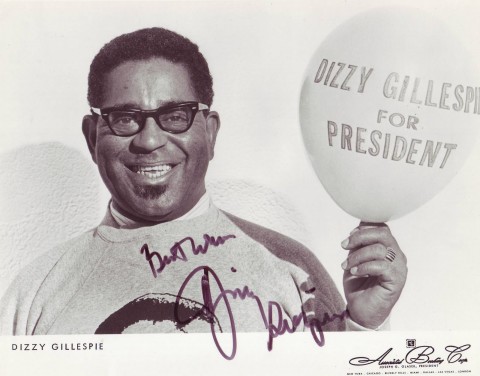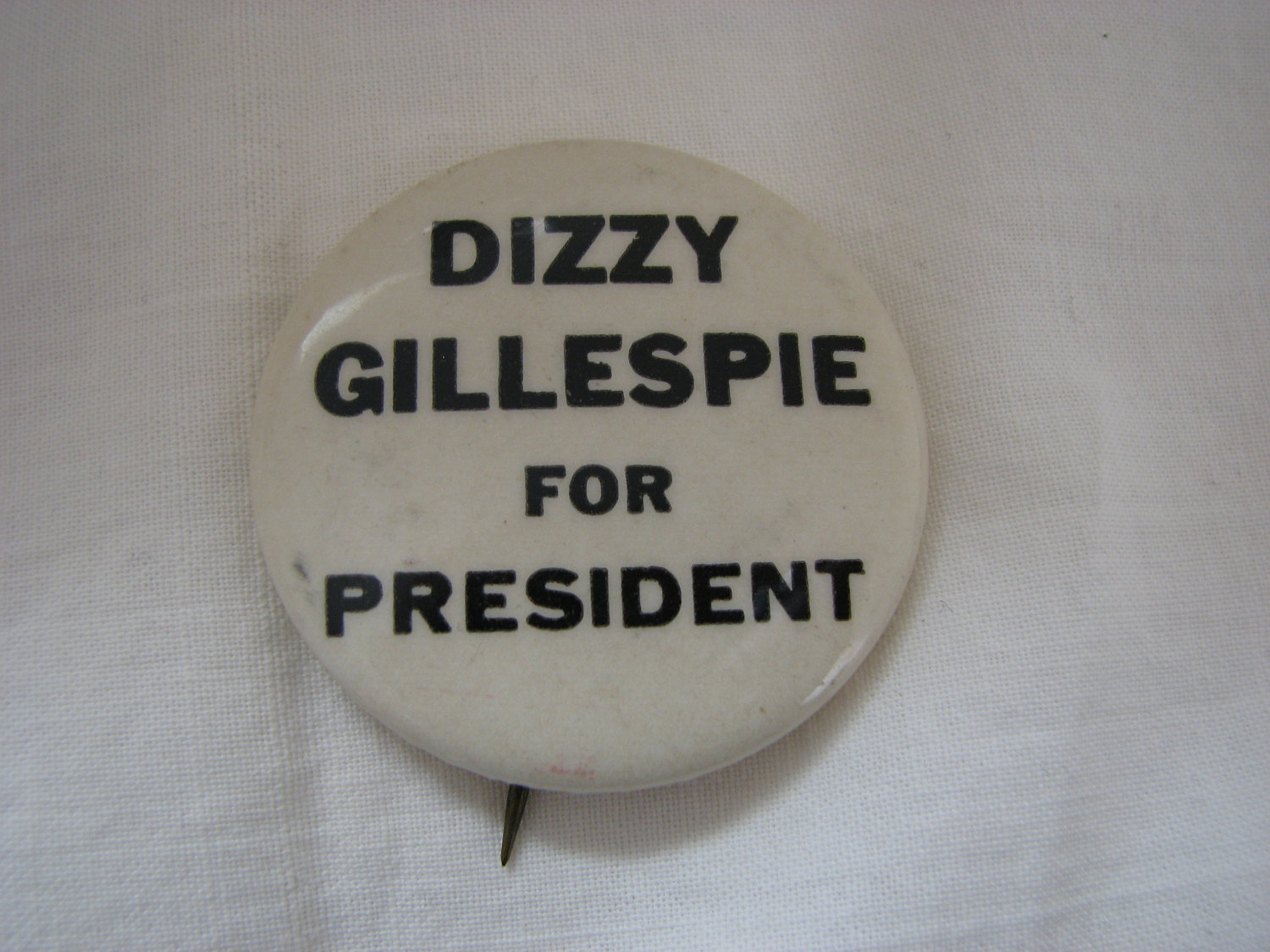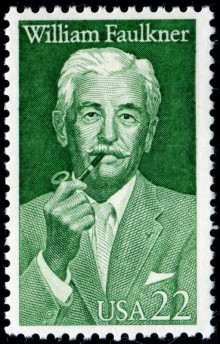There comes a point in every national election year when I reach total saturation and have to tune it all out to stay sane—the nonstop streams of vitriol, the spectacles of electoral dysfunction, the ads, the ads, the ads. I’m sure I’m not alone in this. But imagine how differently we could feel about presidential elections if people like, I don’t know, Dizzy Gillespie could get on a major ticket? That’s what might have happened in 1964 if “a little-known presidential campaign… had been able to vault the millionaires-only hurdle.” What began as one of Dizzy’s famous practical jokes, and a way to raise money for CORE (Congress for Racial Equality) and other civil rights organizations became something more, a way for Dizzy’s fans to imagine an alternative to the “millionaire’s‑only” club represented by Lyndon Johnson and Barry Goldwater.
Gillespie’s campaign had “Dizzy Gillespie for President” buttons, now collector’s items, and “Dizzy for President” became the title of an album recorded live at the Monterey Jazz Festival in 1963.
A take on his trademark tune “Salt Peanuts,” “Vote Dizzy” was Gillespie’s official campaign song and includes lyrics like:
Your politics ought to be a groovier thing
Vote Dizzy! Vote Dizzy!
So get a good president who’s willing to swing
Vote Dizzy! Vote Dizzy!
It’s definitely groovier than either one of our current campaigns. Dizzy “believed in civil rights, withdrawing from Vietnam and recognizing communist China,” and he wanted to make Miles Davis head of the CIA, a role I think would have suited Miles perfectly. Although Dizzy’s campaign was something of a publicity stunt for his politics and his persona, it’s not unheard of for popular musicians to run for president in earnest. In 1979, revolutionary Nigerian Afrobeat star Fela Kuti put himself forward as a candidate in his country, but was rejected. More recently, Haitian musician and former Fugee Wyclef Jean attempted a sincere run at the Haitian presidency, but was disqualified for reasons of residency. It’s a little hard to imagine a popular musician mounting a serious presidential campaign in the U.S., but then again, the 80s were dominated by the strange reality of a former actor in the White House, so why not? In any case, revisiting Dizzy Gillespie’s mid-century political theater may provide a needed respite from the onslaught of the current U.S. campaign season.
Josh Jones is a doctoral candidate in English at Fordham University and a co-founder and former managing editor of Guernica / A Magazine of Arts and Politics.




